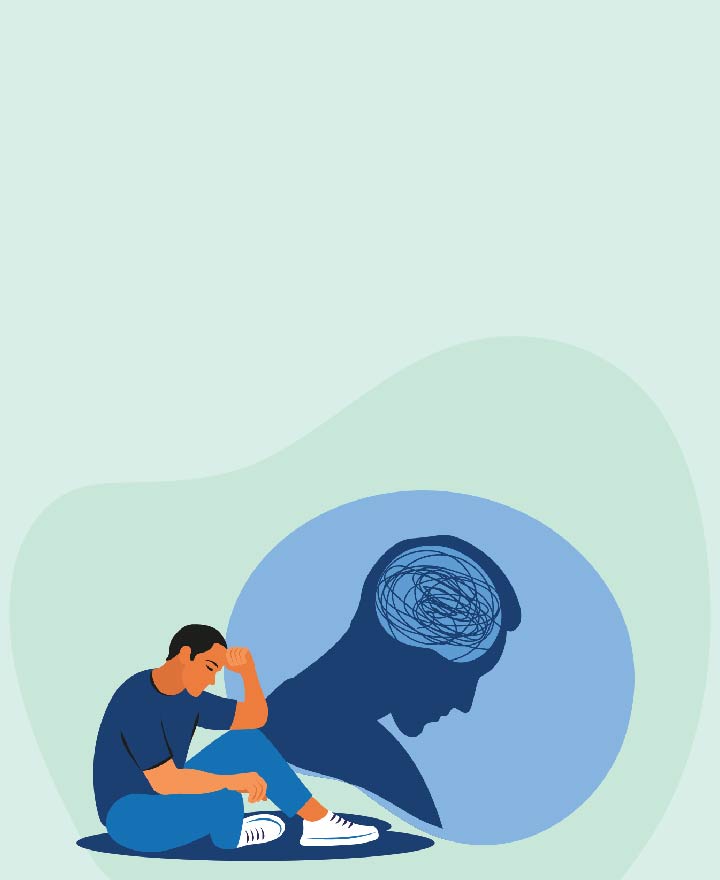

How to Offer Support to Someone With PTSD
Post-Traumatic Stress Disorder, or PTSD, is a challenging condition for many people. It happens if a person experiences a scary or life-threatening event. People with PTSD may feel anxious, scared, or stressed, even when the danger is over. Understanding what PTSD is and learning simple ways to help can go a long way. If you want to know more about supporting someone coping with PTSD, keep reading the practical tips and insights ahead to guide you in being a supportive presence for your near and dear ones.
Steps to Help Someone Suffering From PTSD
Supporting someone with PTSD requires patience and empathy. If you are trying to help someone cope with post-traumatic stress disorder, then the following steps may be helpful.
• Understand PTSD
Learn about PTSD and try to understand what the person is going through. PTSD is a nuanced disorder, and you need to educate yourself to learn about the condition.
• Listen
Be attentive and listen carefully. Create a safe space for the victim. We are usually busy talking and giving our opinions. A person with PTSD requires a compassionate listener who would not judge the person’s condition.
• Avoid Triggers
Understand that some situations or topics may be triggering a PTSD episode in people diagnosed with PTSD. Respect their boundaries as well as avoid pushing them to discuss things they're not comfortable with. Try to recognise their potential triggers and avoid those in your conversations.
• Establish a Routine
Establishing a routine can provide a sense of stability and predictability, which can be comforting for someone dealing with PTSD. Assist with daily tasks or responsibilities when needed. Simple gestures, like helping with chores or errands, can alleviate stress and show your support.
• Seek Professional Help
Encourage people who have PTSD to seek professional therapy. Sometimes just being understanding and caring is not adequate to heal them. Professional therapy can help them identify and alleviate their triggers. Trained professionals can provide the necessary tools to cope with and manage PTSD symptoms.
• Social Support
Those coping with PTSD require social support. Try to stay connected to them by calling, messaging, and meeting them frequently. Encourage them to have positive interactions with friends and family. Participate with them in activities together to combat isolation.
• Self-care
Supporting and caring for someone with PTSD can take a toll on your mental as well as physical health. Take care of your own well-being, and seek support from friends or professionals if needed.
Conclusion
Your support can make a huge difference in someone’s life. However, you are not a substitute for professional help. Encourage your loved one to seek support from mental health professionals who specialise in PTSD. It takes courage to ask for help, so encourage the person to get the required professional support.
One of the important components of our overall wellness is also being financially secured. Healthcare emergencies can happen any time, but a good health insurance policy can protect you from such uncertain situations. To know more about Wellness and other health related tips, visit the Wellness Corner.
Source: helpguide, mind.org, psychcentral, ptsd.va.gov, healthline, mayoclinic
Disclaimer: This blog provides general information and discussions about health and related subjects. The information and other content provided in this blog, website or in any linked materials are not intended and should not be considered, or used as a substitute for, medical advice, diagnosis or treatment. Kindly contact your Doctor before starting a new medicine or health regime.
Related Articles
Post-Traumatic Stress Disorder (PTSD) - Causes and Risks
An Overview of The Complications and Treatment of PTSD
PTSD Symptoms - When Should You Seek Help
Relationship Between PTSD and Substance Use Disorder
Exploring Different Types of Anxiety Disorders
Published on December 06, 2023














 Health Insurance
Health Insurance  Travel Insurance
Travel Insurance  Car Insurance
Car Insurance  Cyber Insurance
Cyber Insurance  Critical Illness Insurance
Critical Illness Insurance
 Pet Insurance
Pet Insurance
 Bike/Two Wheeler Insurance
Bike/Two Wheeler Insurance  Home Insurance
Home Insurance  Third Party Vehicle Ins.
Third Party Vehicle Ins.  Tractor Insurance
Tractor Insurance  Goods Carrying Vehicle Ins.
Goods Carrying Vehicle Ins.  Passenger Carrying Vehicle Ins.
Passenger Carrying Vehicle Ins.  Compulsory Personal Accident Insurance
Compulsory Personal Accident Insurance  Travel Insurance
Travel Insurance  Rural
Rural